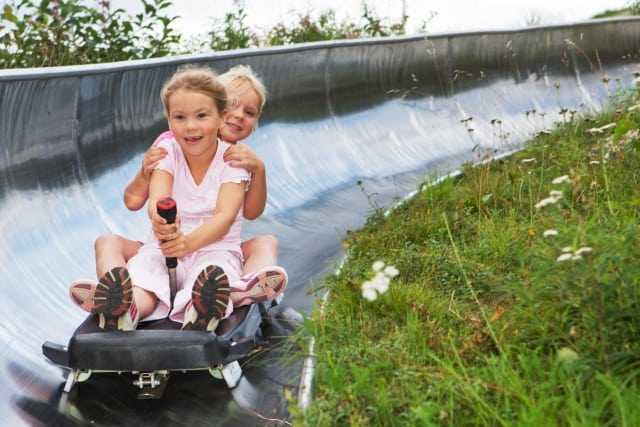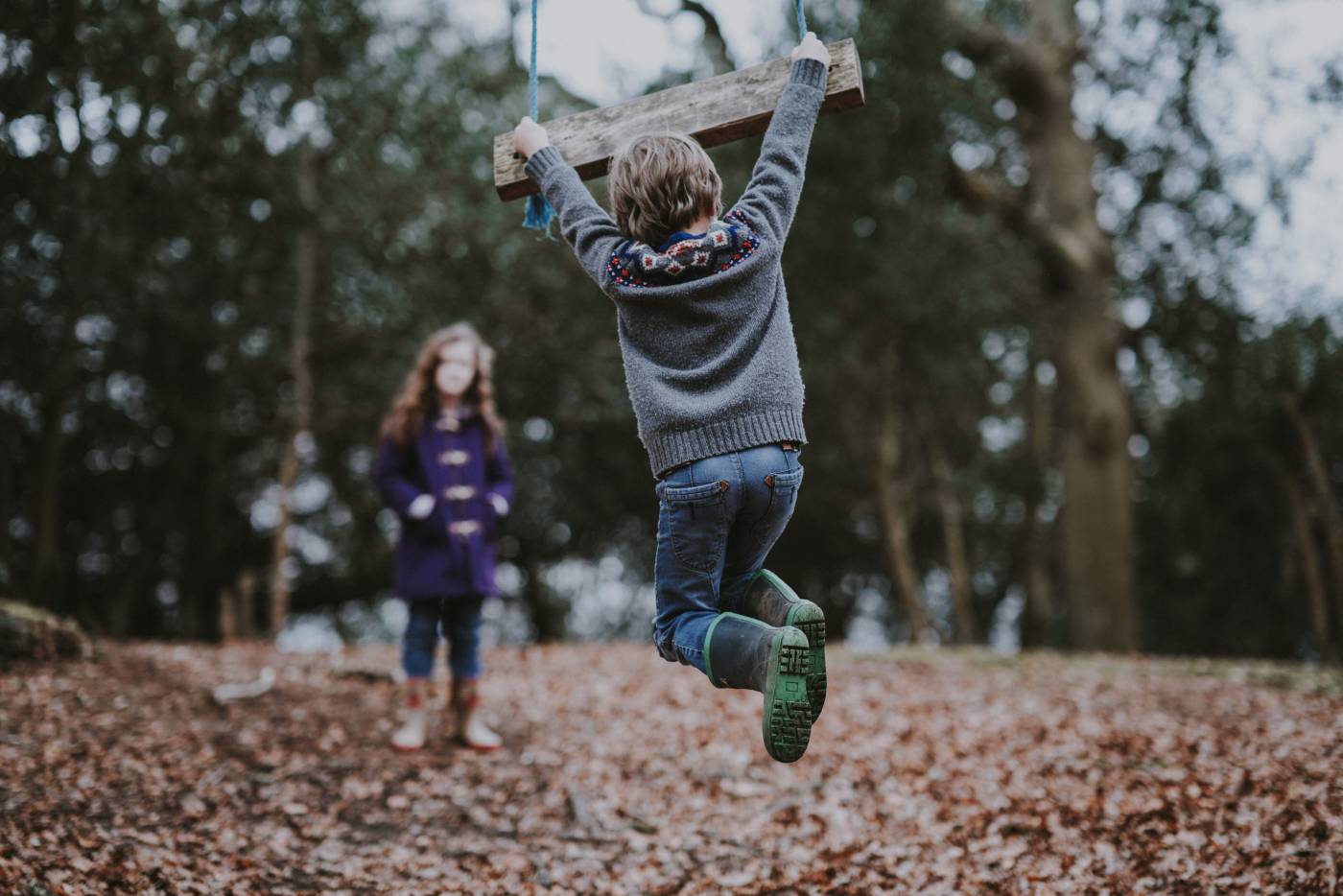“The opposite of play isn’t work,” said Brian Sutton-Smith. “It’s depression.” Which may help to explain why, in an era when play is being stripped from children’s lives, a growing number of kids are self-reporting unusually high levels of anxiety and depression.
The problem is as simple as it is insidious. While we’ve long known that unstructured play is critical to children’s mental, emotional, and physical development, parents nevertheless are replacing it with adult-sanctioned activities. Consider:
- Over the past half century, tens of millions of kids who once would have tramped through forests and creeks, idled away an afternoon buried in a book, or made up games with friends are instead ferried by increasingly anxious helicopter parents from one organized event to the next.
- Once the domain of children’s fevered imaginations and enormous energies, playgrounds today have been bubbled wrapped “at the level of the most anxious parent.”
- Silicon Valley is investing billions on technologies designed to enrich its stockholders while wooing young minds on digital activities that lead to anxiety and depression.
So endangered is play in the lives of today’s children that the American Academy of Pediatrics (AAP) issued a report urging pediatricians to write prescriptions for play.
“The opposite of play isn’t work. It’s depression.”
You read that right: along with peering into your kids’ ears, listening to their hearts, and advising an apple a day, doctors are being asked to remind mom, dad, and kids alike to play.
Why Finland’s Schools are Successful …
The need for such a report may seem like a forehead-slapper, particularly to those of us who came of age in an era with gobs of unstructured play time.
But it turns out that play really is disappearing from the lives of American kids. Consider that upward of 30% of U.S. kindergartens no longer include recess as part of a child’s day. Or that the average American child now spends 5-8 hours per day staring into a screen.
Writes Collin O’Mara, president and CEO of the National Wildlife Federation, in a recent essay: “The days of the free-range childhood, where kids spend hours outside playing in local parks, building forts, fording streams and climbing trees, have been mostly replaced by video games, television watching and organized activities such as sports and clubs.”

Now contrast this with kindergartens in Finland, which include a minimum of 90 minutes of outdoor play each and every day. In fact, Finnish children don’t begin formal education – aka reading, writing, arithmetic – until the age of seven. Instead they are encouraged to invest their time in ‘creative play.’
Yet despite (or because of) this ‘delay’ in formal education and all of that focus on play, Finland’s students have ranked tops across Europe for nearly 20 years.
… and Kids are Happier in the Netherlands
According to UNICEF, of 29 developed countries surveyed, the world’s happiest children can be found in the Netherlands (American kids rank 26th). Furthermore, a whopping 95% of Dutch children say they are happy.
As in Finland, Dutch children begin formal education later than in the U.S. and elsewhere, and they spend an enormous part of their early years at play.
Even when schooling does begin, Dutch kids still spend a lot of their time being kids. Schools do not create pressure on kids to test well and perform, recognizing – as research has demonstrated – that a child who starts slow in one area eventually will catch up.

This play-centric, stress-free approach to education also leads to happier parents, since their kids aren’t crushed beneath reams of homework, endless testing regimens, and fear of an unsuccessful academic or professional future.
Why Play Actually Matters
Meanwhile, here in the U.S., kids have been under mounting pressures from parents to take advanced courses in school, test well, and engage in one structured activity after another, all with an eye on future academic opportunities and professional success.
“Children today are less free than they have ever been,” says Peter Gray, psychology professor emeritus at Boston College. Not surprisingly, says Gray, the precipitous decline in children’s free time over the past 50 years corresponds with equally dramatic increases in “anxiety, depression, suicide, feelings of helplessness, and narcissism.”
Why the connection?
Gray and others argue that without unstructured free time, children never learn to tackle life on their own terms. “If you don’t have the opportunity to experience life on your own, to deal with the stressors of life, to learn in this context of play where you are free to fail, the world is a scary place,” he says.

Numerous studies have shown the importance of play, and not just for humans – for all species. Play, says the APA, “enhances brain structure and function and promotes executive function (i.e., the process of learning, rather than the content), which allow us to pursue goals and ignore distractions.”
Indeed, if you look across the sciences, from A to Z, every field seems to touch on the power and importance of play.
Anthropologists point out that across history, kids of all cultures were urged to play and explore their surroundings, often from dawn to dusk, rarely with adult supervision, and that by doing so “they acquired the skills and attitudes required for successful adulthood.”
Biologists note that play alters children’s brains right down to the molecular level, and that those changes, in turn, manifest in healthier behaviors as adults. For example, the child “who can play imaginatively,” said Sutton-Smith, “doesn’t tend to be violent. It’s the same with adults.”
And zoologists have long witnessed the importance of play in the young of other species as they learn to understand and navigate the world around them.
Let Them Play
The solution, of course, is to let your kids play, as much as possible, and with as little structure and guidance from mom and dad as possible.
Despite 24/7 access to every horror story taking place in the world, the truth is that it’s never been safer to be a child in America. Which means it’s OK for your son or daughter to disappear into the woods for a bit, climb a tree, slosh about in a brook, or wander about the neighborhood with friends.
Remind yourself that while extracurricular activities are good for your kids, they should be balanced against an abundance of free time.

“We’re in a climate where parents are feeling like they need to schedule every minute of structured time,” said Dr. Michael Yogman, lead author of the AAP report and chairman of the organization’s committee on psychosocial aspects of child family health. “Some people say play is a waste of time. Well, it’s not a waste of time.”
That’s probably the most important reminder of all. Play is important, it matters, and the kids who play the most usually end up being the happiest and most well-rounded.
And believe it or not, play for parents matters too. As George Bernard Shaw famously declared: “We don’t stop playing because we grow old; we grow old because we stop playing.”

You better be aware as to why American kids need more play less purpose in life. This would be a great read during your free time. Thanks for sharing this great article.